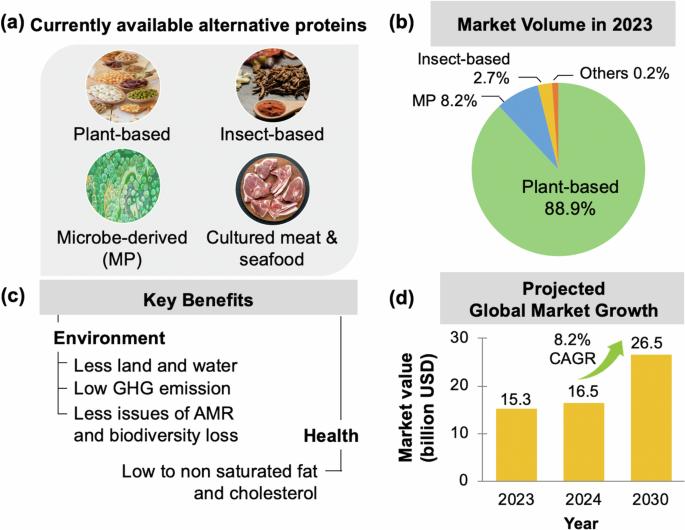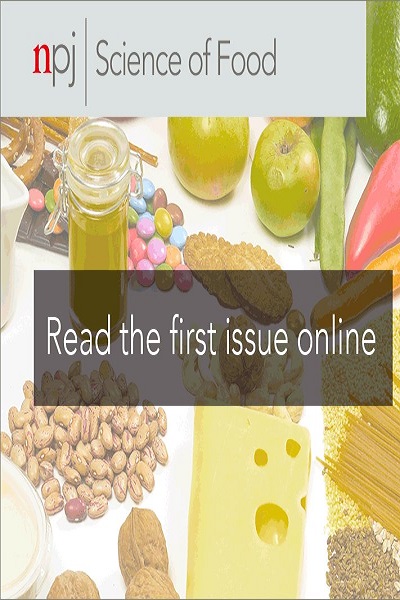替代蛋白质作为未来食品的当前挑战
IF 6.3
1区 农林科学
Q1 FOOD SCIENCE & TECHNOLOGY
引用次数: 0
摘要
预计到 2050 年,全球粮食需求量将增加近一倍。随着自然资源日益枯竭,替代蛋白质(AP)已被提出作为提供粮食安全的可持续解决方案。然而,替代蛋白质的增长和消费者摄入量仍然有限。本综述旨在更好地了解植物性蛋白、昆虫蛋白、微生物衍生蛋白以及养殖肉类和海产品这四大类替代蛋白所面临的挑战和对环境的影响。植物蛋白和昆虫蛋白对环境的益处已有文献记载,但微生物衍生蛋白和养殖肉类对环境的影响尚未得到充分评估。开发营养和感官特征与传统产品相似的替代产品仍然极具挑战性。此外,不完整的安全评估和缺乏明确的监管准则也混淆了食品工业,阻碍了食品工业的发展。在支持推动全球食品系统可持续发展的背景下,要充分支持 AP 的利用,仍有许多工作要做。本文章由计算机程序翻译,如有差异,请以英文原文为准。

Current challenges of alternative proteins as future foods
Global demand for food is expected to nearly double by 2050. Alternative proteins (AP) have been proposed as a sustainable solution to provide food security as natural resources become more depleted. However, the growth and consumer intake of AP remains limited. This review aims to better understand the challenges and environmental impacts of four main AP categories: plant-based, insect-based, microbe-derived, and cultured meat and seafood. The environmental benefits of plant-based and insect-based proteins have been documented but the impacts of microbe-derived proteins and cultured meat have not been fully assessed. The development of alternative products with nutritional and sensory profiles similar to their conventional counterparts remains highly challenging. Furthermore, incomplete safety assessments and a lack of clear regulatory guidelines confuse the food industry and hamper progress. Much still needs to be done to fully support AP utilization within the context of supporting the drive to make the global food system sustainable.
求助全文
通过发布文献求助,成功后即可免费获取论文全文。
去求助
来源期刊

NPJ Science of Food
FOOD SCIENCE & TECHNOLOGY-
CiteScore
7.50
自引率
1.60%
发文量
53
期刊介绍:
npj Science of Food is an online-only and open access journal publishes high-quality, high-impact papers related to food safety, security, integrated production, processing and packaging, the changes and interactions of food components, and the influence on health and wellness properties of food. The journal will support fundamental studies that advance the science of food beyond the classic focus on processing, thereby addressing basic inquiries around food from the public and industry. It will also support research that might result in innovation of technologies and products that are public-friendly while promoting the United Nations sustainable development goals.
 求助内容:
求助内容: 应助结果提醒方式:
应助结果提醒方式:


